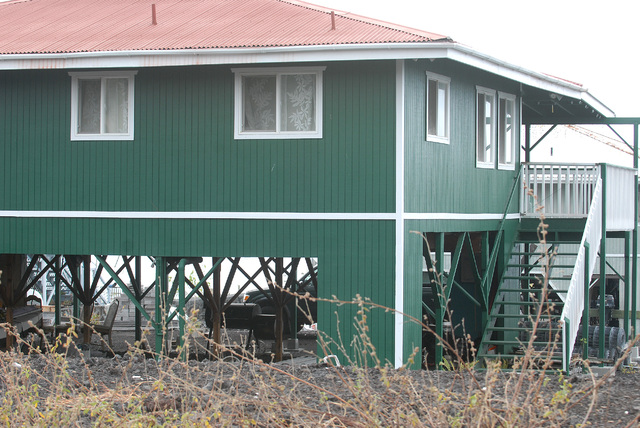HILO — The state Department of Land and Natural Resources has not yet acted on a questionable land lease by state Sen. Kai Kahele.
It’s been two months since West Hawaii Today revealed that Kahele, who was appointed to his late father Gil Kahele’s seat shortly after the father’s Jan. 26 death, holds a low-cost state land lease for oceanview property in West Hawaii that is legally required to be his primary residence.
At the same time, Kahele, 41, listed the Keneki Place, Hilo, home he now co-owns with his mother as his residence when he entered his name for consideration for the nomination to the seat vacated by his father’s passing. State law requires that appointees to legislative seats live in the district.
“DLNR is in discussions with Mr. Kahele regarding further disposition of the lease,” spokeswoman Deborah Ward said in an emailed response Monday. “It’s still under review.”
Neither Ward nor Kahele would go into detail about what the discussions entailed.
Kahele maintains his Keneki Place address is his primary residence.
“In regards to the land lease issue with DLNR, I am in continued consultation with the land division to resolve the issue,” Kahele said in an email Monday.
DLNR spokesman Dan Dennison said the lease contains a breach provision. The Board of Land and Natural Resources has the authority to revoke leaseholds that are not in compliance, but so far, the matter has not been put on an agenda.
“If a lessee violates a condition of the lease, we can issue a notice of default. If the lessee does not timely cure (usually within 30 or 60 days), we can take the lease to the board for termination,” Dennison said in a February email. “It’s in the Board of Land and Natural Resources’ hands at that point.”
Kahele had said in a Feb. 25 statement he was approached by extended family with a request to assume his aunt’s lease on the Milolii property.
“My aunt was in poor health and her family was afraid that the lease would be lost by our family. Under those circumstances, I agreed to pay off my aunt’s mortgage and assume the lease with DLNR,” he said at the time.
He didn’t respond to questions Monday about how he is related to the former leaseholder, Sally Kahikinaokala Dacalio. Dacalio, who had signed the lease over to Kahele in 2011, died in Milolii in 2013. There was no mention of any Kaheles in her obituary, which listed four sons, three daughters, one brother, two sisters, one hanai daughter and one hanai sister.
Kahele on July 20, 2011, paid $35,000 for assignment of a Milolii lease from Dacalio. He is required to pay $132 annual rent as a condition of the lease, according to documents obtained by the newspaper.
The 65-year lease, expiring in 2059, must be used “solely for residential purposes as the lessee’s principle domicile,” according to a two-page agreement approved by the state Board of Land and Natural Resources on Sept. 9, 2011.
Kahele has said he was unaware of the residency requirements of the lease until pointed out by the newspaper in February.
The 10,000-square-foot lot with a 936-square-foot house on Milolii Road has a total taxable value of $140,700.
The long-term leases in Milolii, created by the Legislature in 1982, authorized DLNR to enter leases with persons residing in Milolii who were disposed or displaced as a result of the 1926 volcanic eruption of Mauna Loa, according to DLNR.
Just before taking over the Milolii lease, Kahele was given joint tenancy in his mother and father’s Keneki Place home through a Jan. 11, 2011, quitclaim deed.
Kahele lives in Hilo with his wife, Maria, and their children, but he retains an interest in the Milolii area where his father grew up. He’s the president and executive director of Paa Pono Milolii, a community support group. On its website, he describes himself as “a part-time Milolii resident, he resides in Hilo.”
Kahele is also sponsoring Senate Bill 3071, introduced by his father, directing the state to purchase about 6,000 acres at Kapua Bay, just south of Milolii. The plan would include incorporating the land into the South Kona Wilderness Area, which the senior Kahele helped create.
The measure calls for money from the state’s transient accommodations tax to purchase the land.
The land deal came under scrutiny in a Honolulu Star-Advertiser article Sunday that found Senate President Ron Kouchi has had long-standing and substantial business ties with one of the owners of the property.






